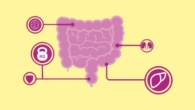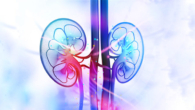
How to recognize a mental disorder by the manner of communication
0
Be attentive to small things: sometimes strange behavior of a person – nothing but symptoms of the disease.
Depression
According to the WHO, depression is the most common mental illness: it affects more than 300 million people worldwide. With depression, there is a persistent decrease in mood and self-esteem, loss of interest in life and former hobbies, pessimism, sleep and appetite disorders.
The language of a depressed person has its own characteristics:
- Quiet voice.
- Lack of desire to have a conversation.
- Long thinking before answering, inhibition, careful selection of words.
- Frequent use of words with a negative connotation (“lonely”, “sad”, “unhappy”), pronouns “I” and words expressing totality (“always”, “nothing”, “totally”).
In addition, there is the concept of masked depression, when a person hides his problems and tries to appear happy. Recognizing the disorder in this case is not easy: the interlocutor will always deny all life difficulties. May make suicidal jokes.
Bipolar affective disorder (BAD)
Bipolar affective disorder, or manic-depressive psychosis, is another mental illness associated with mood swings. About 60 million people in the world suffer from it. The life of such people passes in two modes: mania (or hypomania – its milder form) and depression. The duration of each period is individual and unpredictable, it can range from several days to several months.
The manic phase is characterized by an incredible rise in mood and strength, increased activity, including sexual activity. There is so much energy that a person stops sleeping and eats, he is busy all the time. The language of the patient in the manic phase is distinguished by the following signs:
- Excessive talkativeness. A person is agitated, jumps from one thought to another.
- Bragging, confidence in oneself and in the feasibility of one's plans. The person says that he is ready to move mountains and complete many different projects.
- Delusive ideas (appear in special cases). For example, the patient may say that everyone is jealous of him and want to harm him.
The depressive phase is accompanied by a decline in strength, self-esteem, sexual desire, loss of interest in former hobbies and life in general. A person is depressed, inhibited, does not want to communicate with anyone. In severe cases, plans suicide.
Generalized anxiety disorder
A third of the world's population is prone to this disease. A person constantly feels worry and anxiety, suffers from unpleasant sensations in the body: trembling, sweating, dizziness, discomfort in the area of the solar plexus. Anxiety is usually caused by various fears related to the future.
Among the characteristics of communication:
- Talking about one's own fears. A person is afraid to fly on a plane, to get into an elevator, to communicate, to enter unfamiliar places.
- Constant indignation and complaints, including about health.
Most often, these are lonely people who have not achieved success in their personal life and work. Often they are outraged by something: the leadership of the country or company where they work, the situation in the state or at home – everything they encounter in life.
Obsessive-compulsive disorder (OCD)
Another disease related to anxiety. With it, the patient has obsessive, frightening thoughts that he is unable to fight. To get rid of anxiety, a person performs some ritual: spits over his left shoulder, checks all the locks in the house, washes his hands, and so on. These actions may seem pointless, but they help the patient to relieve the condition for a short time.
A person with OCD can be recognized by the same signs in speech as those with generalized anxiety disorder. These are complaints, incredulity, repeated conversations about fears. However, it will be much more effective to observe his behavior, track the ritual. A typical OCD American inventor, Howard Hughes, whose life was made into the movie The Aviator. He constantly washed his hands because he was afraid of catching the infection.
OCD patients are very difficult to detect by phrases in the language, the exception is if the person himself wants to tell you about what is bothering him. It's easy to spot them if you watch people in a park, for example.
Post-traumatic stress disorder (PTSD)
The disorder can arise after experiencing a traumatic situation, which is most often associated with a threat to life. Patients-victims of sexual or other violence, terrorist attacks, participants in military operations. They try to avoid conversations, places and situations that may remind them of the events they experienced, but the memories keep bringing them back there. In particularly severe cases, the patient can push the event out of memory, as if to forget.
Patients with PTSD suffer from depressive and anxiety symptoms at the same time, so in their language you can find the same signs as in patients with depression or anxiety disorder.
It is difficult to notice something from their expressions, because they try not to communicate with anyone, living in their experiences. But if the dialogue does happen, you will not hear a word about happiness, joy or love. The interlocutor with PTSD will either be short on words, or will devote his story to the trouble that happened to him.
Schizophrenia
According to WHO, 23 million people worldwide suffer from schizophrenia. This is a serious mental illness, which is accompanied by a violation of thinking, perception of reality, emotions, speech and behavior. Patients do not have a critical attitude towards their condition, in most cases they are sure that they are healthy. A typical example is the mathematician and Nobel laureate in economics John Nash, about whose life the movie “Mind Games” was made.
Schizophrenia can be recognized by the following signs:
- Distrust and paranoia . A person may be sure that he is being persecuted or wants to harm him.
- Grandiose ideas and plans.
- Delusive ideas. The patient may think that aliens took over the world a long time ago.
- Inability to conduct a dialogue and formulate thoughts. They either break off somewhere in the middle of a sentence (sperrung), or consist of a disorderly set of words (verbal okroshka).
One of the most vivid manifestations of schizophrenia in language is delusional symptoms of persecution. The patient will be sure that sticks are being inserted into his wheels, he is being watched. He will whisper his guesses in your ear, looking around.
Remember: you cannot make a diagnosis based on only one language and manner of communication. However, if it seems to you that the behavior of a loved one has changed, then be observant. If the described symptoms are present, it is better to show it to a doctor.
Source storinka.com.ua









Leave a Reply